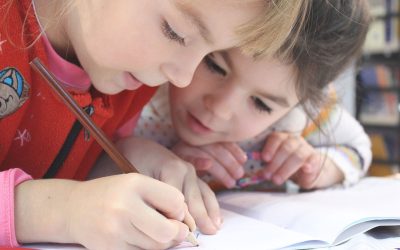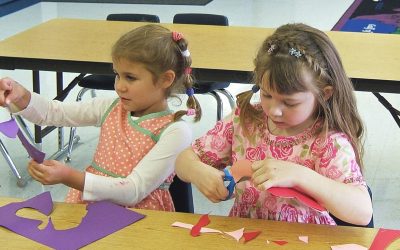Children’s feelings have an impact on their daily functioning, including their behaviour, productivity, and creative expression. Here’s how parents can help to fortify kids’ emotional well-being.
“No matter how apparently smart or confident, each child is still a child first and foremost, with all the anxieties that go with being young, vulnerable, and inexperienced in life.”
Quote extracted from Being Smart about Gifted Education by Dona Matthews and Joanne Foster, p. 241, (2009).
Kids who have a positive perspective about the ups and downs of daily life are better able to stretch themselves cognitively, creatively, productively, and socially. Those who are able to manage their emotions are stronger for it. They’re ready to welcome learning experiences. To ask questions. And, to discover new, creative, and comprehensive ways of thinking about the world around them.
Regardless of age, personal growth is about competencies and opportunities—but it’s also about how a person feels when doing things; that is, when actually exercising those competencies, and experiencing those learning opportunities. And, because there’s a harmonious interplay between how kids feel and what they do, their emotional needs should not be overlooked when thinking about how to support their intellectual development, skill-building efforts, creativity, or overall well-being.
Eight Practical Tips for Parents
“Emotions, from the Latin root movere, “to move,” are what stir us into action. As a beacon of light guides a lost ship, emotions guide our behaviors.”
Quote extracted from Social and Emotional Development in Early Intervention by Mona Delahooke, p. 1, (2017).
Emotional literacy is a fundamental aspect of healthy child development. The following suggestions are for parents who are seeking to help kids strengthen their emotional capacities:
1. Be aware.
Pay attention to children’s reactions and behaviors (such as acting out, depression, aggression, procrastination, arrogance, or introversion). Parents who are attuned to their children, and aware of what they’re up to—and with whom—are better positioned to help them respond to challenges and any emotional upheavals.
2. Identify causes.
Help kids recognize the causes that underlie the feelings they’re experiencing. (For example, fear, guilt, joy, embarrassment, jealousy, confusion, disgust, grief, hope, frustration…) Encourage them to name and to acknowledge those feelings in order to gain self-awareness. They may want to choose the time or place. Some children have trouble putting feelings into words, so be prepared to help them with that. Stories can be good catalysts, and drawing or journaling can also be beneficial.
3. Communicate.
Talking about emotions with others can be an effective way to deal with them. So be available to chat with kids. Listen carefully to what they have to say. Offer comfort. Rephrase what they tell you so you can be sure you’re on the same wavelength. Share your own experiences (within reason) with feelings like shame, sadness, or disappointment, including how you managed them. Be patient. Don’t rush, or attempt to diminish children’s concerns, or gloss over them. Sometimes children’s venting, crying, silence, or quarreling represent their first steps toward coming to terms with their emotions. Give them the time and space they need to put their feelings in perspective, and to then learn to regulate them.
4. Value self-reflection.
Model and reiterate the benefits of thinking things through. For example, you might choose to think about how or why certain circumstances or events are unfolding as they are, ways in which similar situations might be handled in the future, and the potential impact of different sorts of behaviors (such as antagonism or withdrawal), or attitudes (such as anger, happiness, or worry). Children may need relaxation, unstructured play, fewer demands, music, or alone time in order to calm down, get a handle on what they’re feeling, and consolidate their thoughts.
5. Encourage resilience.
Help children develop the ability to deal effectively …








